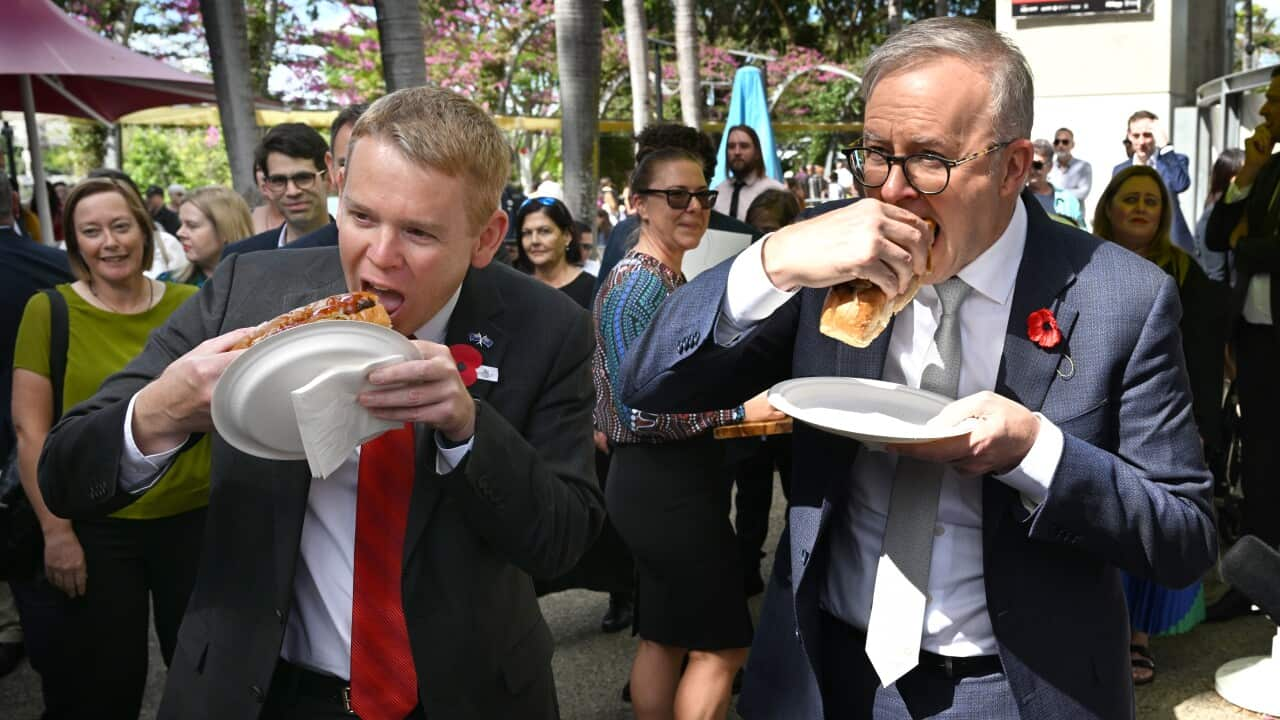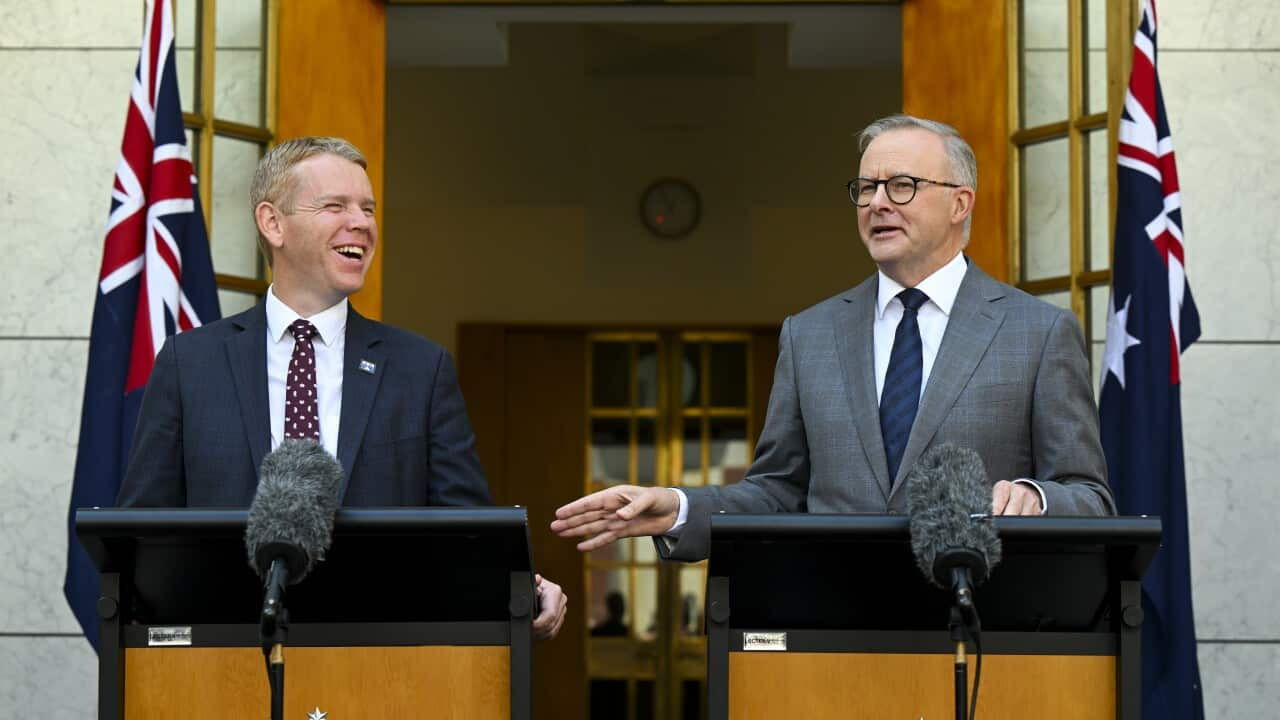Key Points
- Some 400,000 New Zealanders living in Australia will soon have their path to citizenship eased, in a major policy reversal.
- The two leaders celebrated the easier citizenship pathway for Kiwis by attending a citizenship ceremony and eating snags.
- The two countries are celebrating a number of milestones this year including trans-Tasman travel and free trade deals.
A splash of sauce on his top lip, Anthony Albanese has celebrated "strengthened bonds" with New Zealand brought by his .
The Australian Prime Minister was visited by New Zealand leader Chris Hipkins in Brisbane on Sunday, holding talks on shared economic and geo-strategic challenges including AUKUS.
The purpose of the visit was to mark Australia's major reversal on citizenship, which allows Kiwis to become dual nationals after four years of residency.
The announcement, which coincides with the 50th anniversary of the Trans-Tasman Travel Arrangement, could see roughly 400,000 Kiwis of the estimated 700,000 living in Australia eligible for citizenship, according to the Australian government.
The two leaders crashed an Australian citizenship ceremony at South Bank, giving speeches and endorsing the easier pathway, in front of hundreds of New Zealanders who then pledged allegiance to Australia.
"It may surprise some observers the New Zealand prime minister would welcome the opportunity to witness a group of New Zealanders taking citizenship in another country," Mr Hipkins said to laughs.
"But that would ignore the very long and special history of the trans-Tasman relationship, the bonds that bind us all together."
The prime ministers then enjoyed sausages at a community barbecue and staged a joint press conference.
"Welcoming our new Australian citizens will just strengthen the bonds between our great nations and they more normalise the relations Australians have enjoyed in New Zealand for many, many years," Mr Albanese said.
What will the deal cost both countries?
Questions remain over the cost of the deal to both countries.
Australian Home Affairs Minister Clare O'Neil said the fiscal hit to Australia would be revealed in next month's budget.
In New Zealand, there is concern it could lead to a brain drain, with Kiwis chasing higher wages and a touch more sunshine in the lucky country.
"We welcome all of your smartest and brightest but I've never met a Kiwi who wasn't smart and bright," Mr Albanese said before downplaying a possible exodus.
"The contribution that will be made is being made already."
Trans-Tasman friendship
On Sunday morning, the pair unveiled a plaque at Brisbane's Lutwyche Cemetery to recognise previously unmarked graves of soldiers who served during two world wars.
They then sat down for trans-Tasman talks, which for the first time in years, did not include an appeal from New Zealand on deportations.
Deportations of Kiwi criminals have halved in recent months following concessions from Mr Albanese not to send people across the Tasman if they don't have substantial ties to New Zealand.
Mr Hipkins said it "wasn't a topic of conversation", instead chatting about the forthcoming budgets, economic issues and the geopolitics of the region.
Mr Albanese side-stepped a question about whether it was important to Australia that New Zealand sign up to pillar two of the AUKUS agreement.
Mr Hipkins said New Zealand remained open to the conversation, without making commitments.
Alongside the prime ministerial talks and sausage-eating, Mr Hipkins also travelled to the Queensland capital with a business delegation in tow.
The Kiwi PM was a guest of honour on Saturday night at a dinner attended by Queensland's most powerful politicians including Premier Annastacia Palaszczuk, federal Treasurer Jim Chalmers and Lord Mayor Adrian Schrinner.
Dr Chalmers, an architect of the citizenship deal, said there was a "Kiwi caucus in the parliamentary Labour party" pulling for Kiwis to have more rights.
"We consider balance when it comes to the flow of people to be a really important thing," he said.
Dr Chalmers' electorate of Rankin - like many in Queensland - has thousands of New Zealand-born residents who will now be eligible for citizenship under the policy shift.
The two nations are celebrating a number of anniversaries this year; 40 years of the Closer Economic Relations free trade deal, 50 years of the Trans-Tasman Travel Arrangement and 80 years since the establishment of high commissions.












